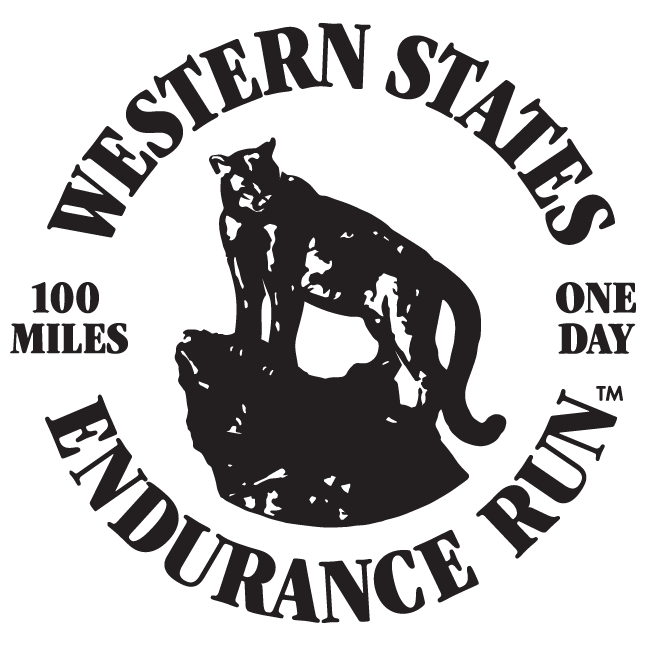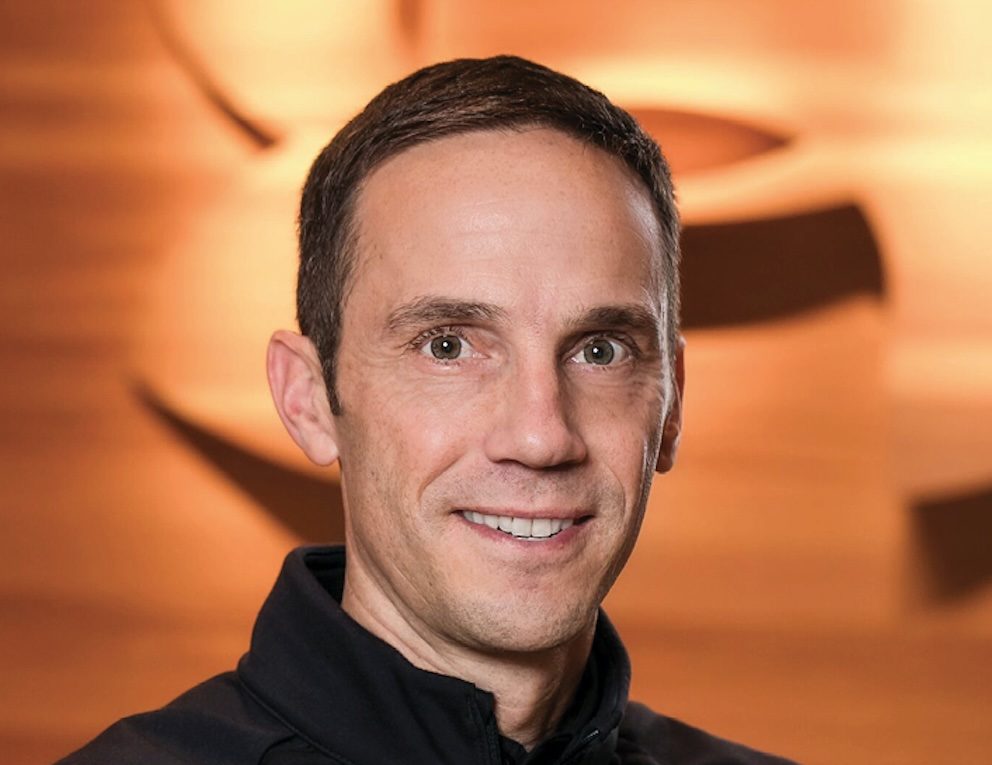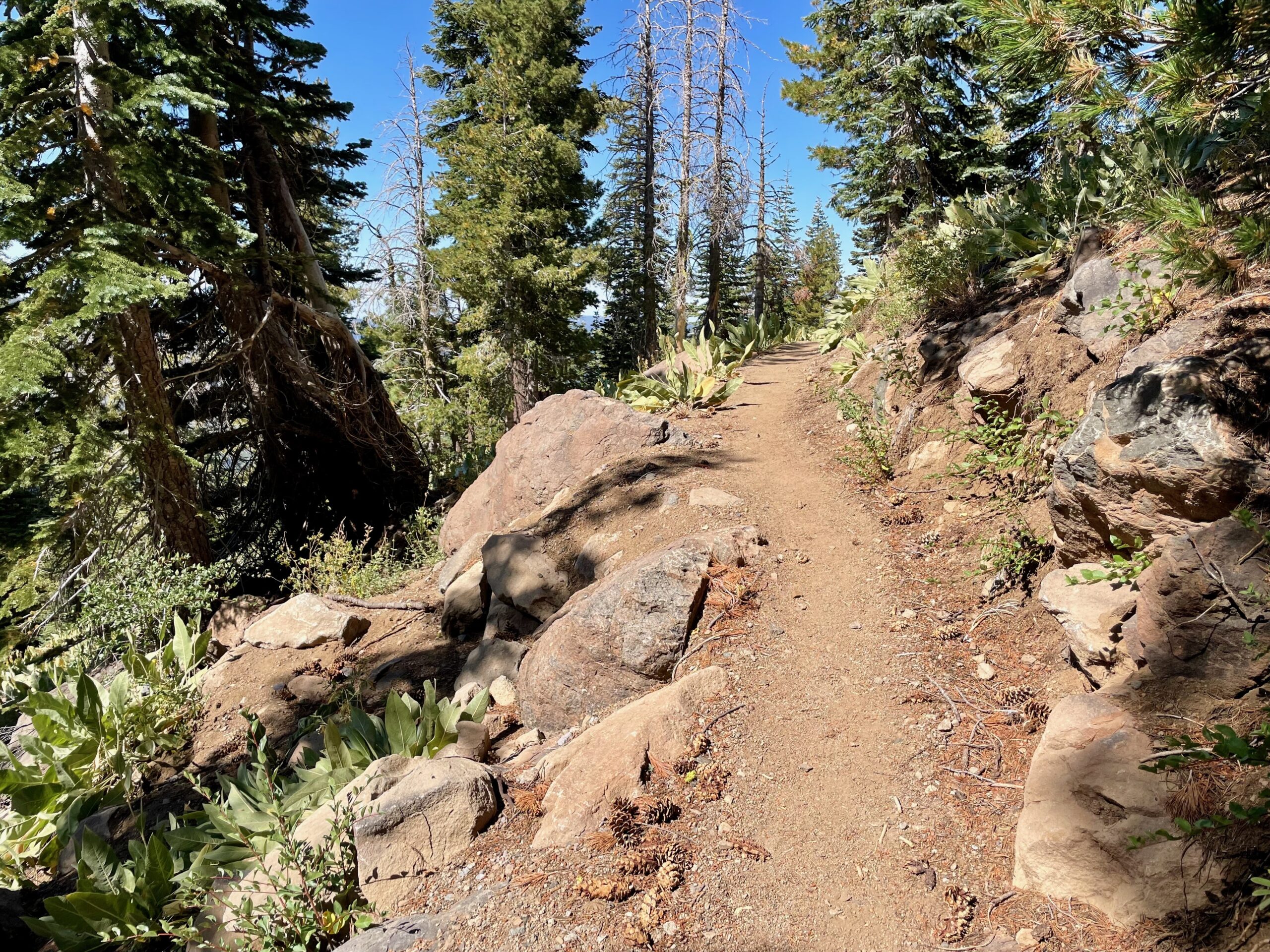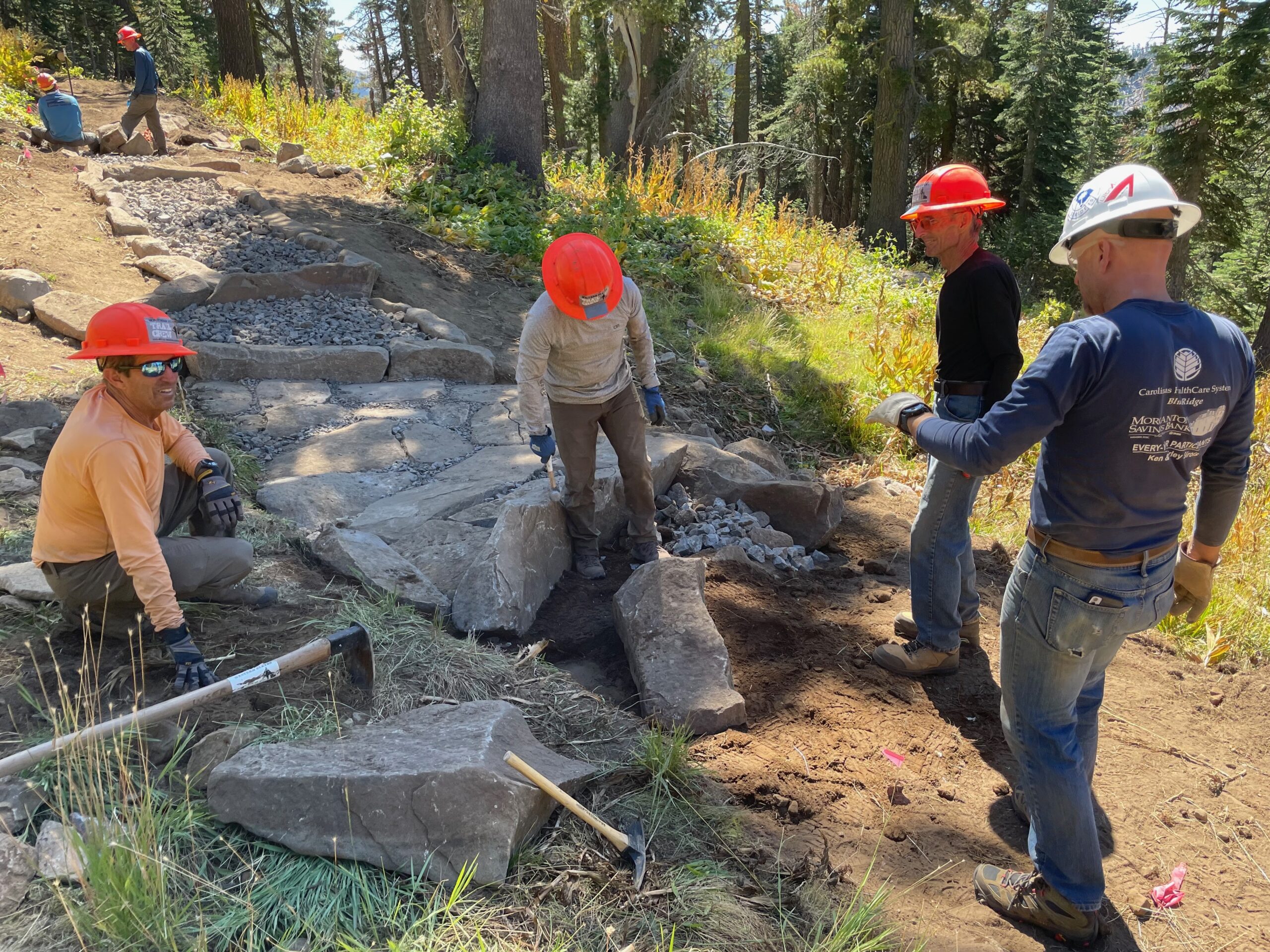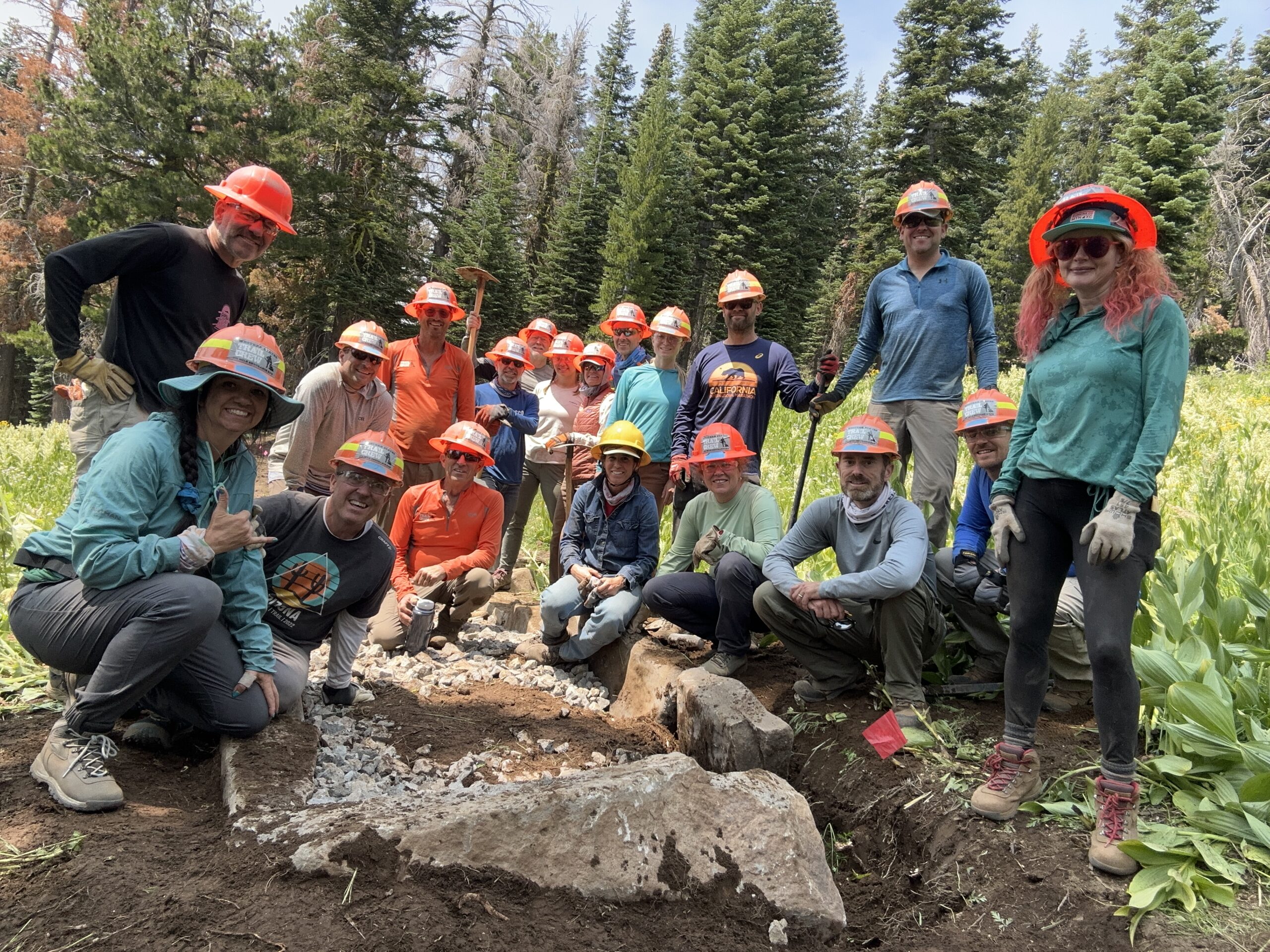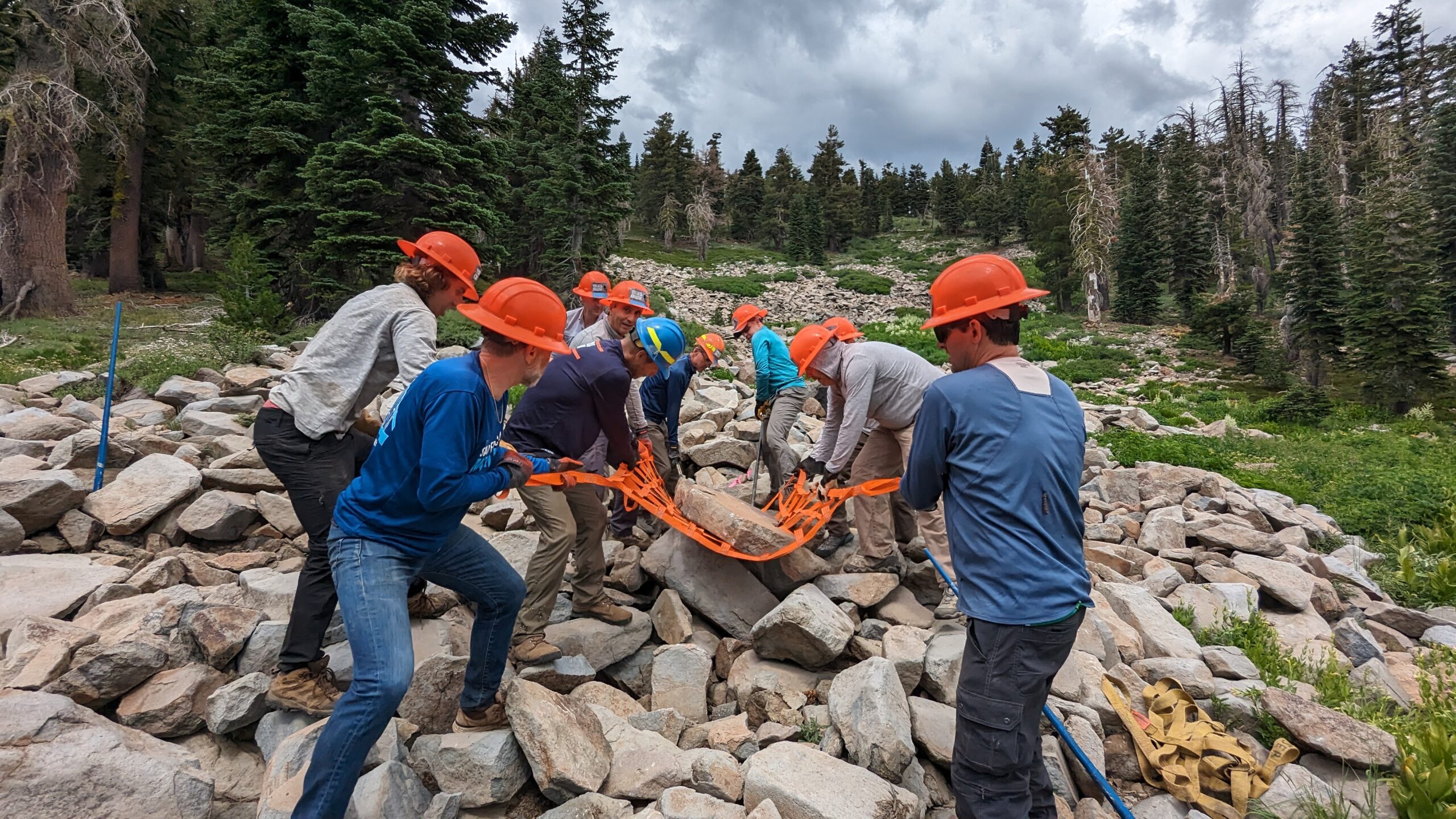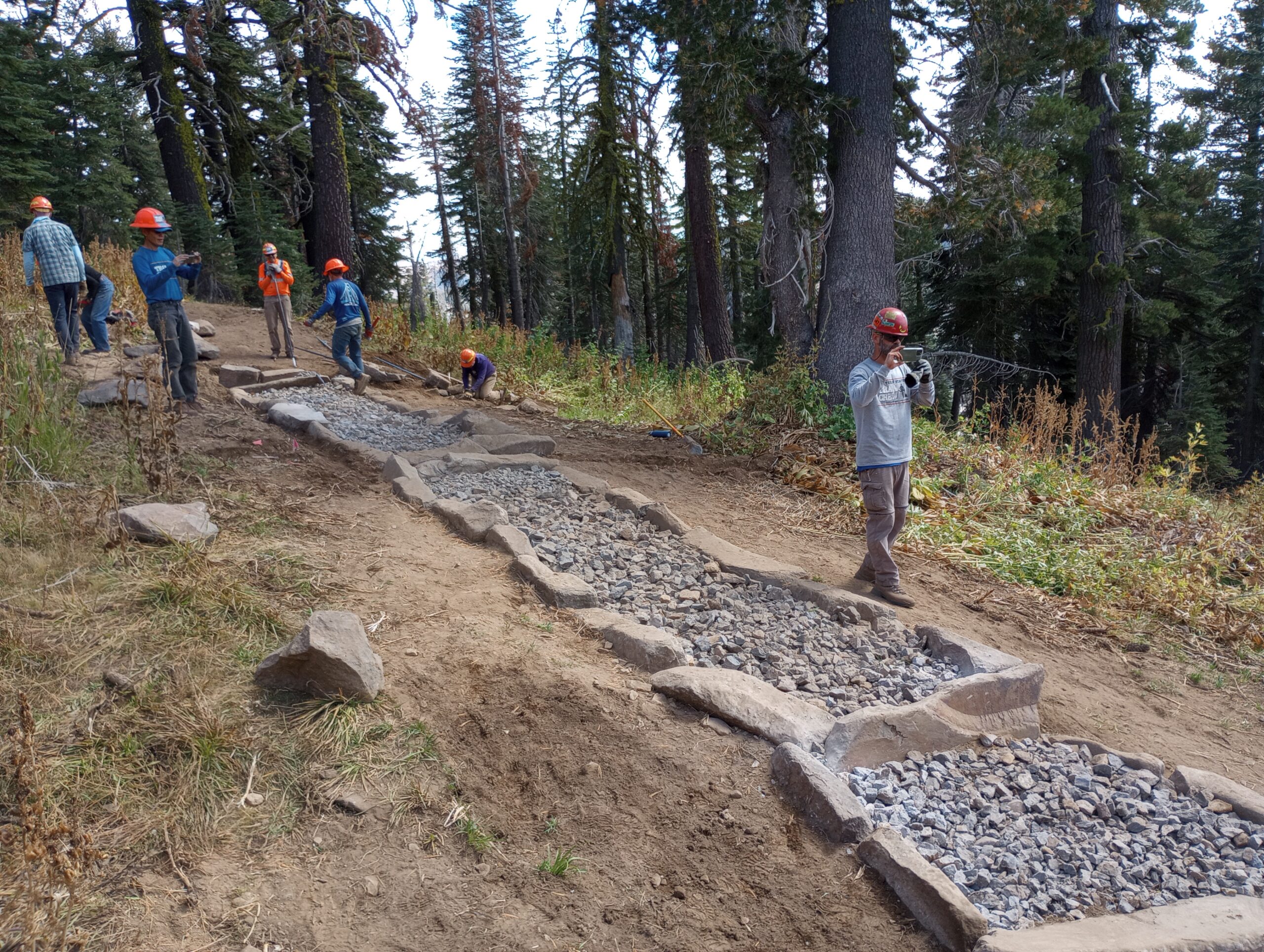Diana Fitzpatrick, a longtime Western States Endurance Run (WSER) board member whose tenure as the organization’s president was one of historic achievement for the organization, has been named a recipient of the prestigious “Little Cougar” award, WSER President Topher Gaylord announced.
The Little Cougar is awarded to individuals who have served the Western States Endurance Run organization through the years in extraordinarily significant ways. The Little Cougar is considered the pinnacle of all WSER awards and is not awarded annually. The most recent recipient of the Little Cougar was Ted Knudsen in 2019.
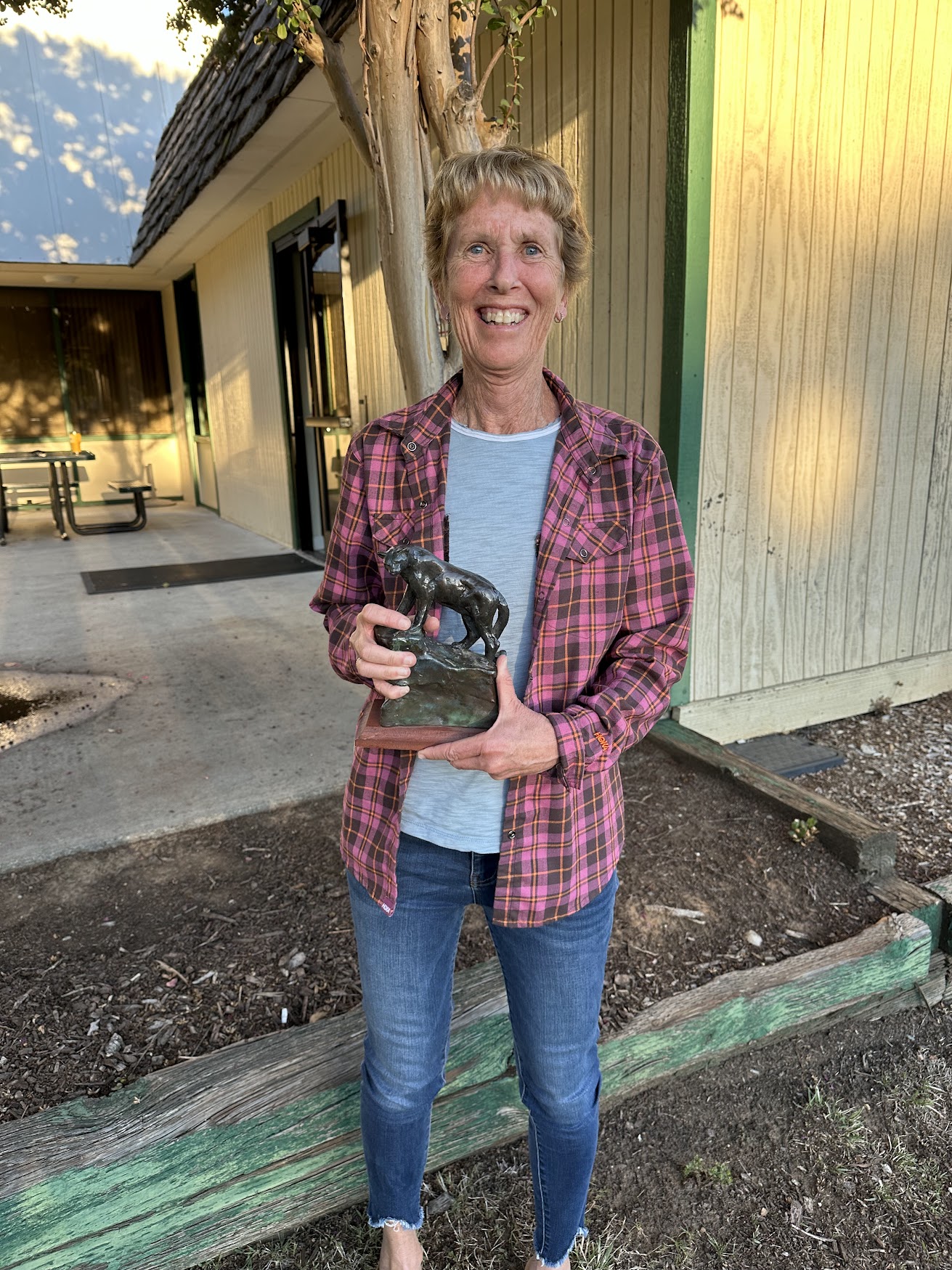 “Diana’s contributions to the Western States Endurance Run are among some of the most significant accomplishments WSER has ever seen,” Gaylord said. “Our organization has always been powered by the belief that no one single individual is greater than the whole, or is solely responsible for our successes. There are, however, individuals that exemplify leadership, teamwork, and organization stewardship who are so extraordinary in all of these areas that they are deserving of individual recognition. This is what Diana Fitzpatrick has meant to WSER. She has exemplified in her years with Western States as a runner, volunteer, pacer, crew member, board member, executive committee member and president the most worthy characteristics of a Little Cougar Award recipient.
“Diana’s contributions to the Western States Endurance Run are among some of the most significant accomplishments WSER has ever seen,” Gaylord said. “Our organization has always been powered by the belief that no one single individual is greater than the whole, or is solely responsible for our successes. There are, however, individuals that exemplify leadership, teamwork, and organization stewardship who are so extraordinary in all of these areas that they are deserving of individual recognition. This is what Diana Fitzpatrick has meant to WSER. She has exemplified in her years with Western States as a runner, volunteer, pacer, crew member, board member, executive committee member and president the most worthy characteristics of a Little Cougar Award recipient.
“It is no stretch to say that Diana is a person whose involvement has made Western States better in every way.”
Fitzpatrick, who already had served as an aid station and trail work volunteer and had run Western States as a top over-40 runner, joined the Western States board in 2012. She was elected president of the organization in 2019 – becoming the first woman to ever be selected president of WSER – and served as WSER’s president until 2024.
Fitzpatrick’s presidency saw Western States successfully navigate several challenges, most notably the COVID-19 pandemic of 2020 as well as 2022’s devastating Mosquito Fire which destroyed several key areas of the Western States Trail and devastated some Gold Country communities, including Michigan Bluff.
“Throughout those difficult times, Diana was always steadfast in her ability to keep our organization focused on the runner experience, which is so central to everything we do at Western States,” Race Director Craig Thornley said. “She made sure the trail team was given the space and the support to do what it needed to do to bring the trail back in time for our event. As a leader, she never lost sight of how valuable our run, the trail we steward, and the volunteers who are giving their hearts and souls to our run, are in connecting communities of people for the common good.”
Gaylord said Fitzpatrick’s achievements speak to an abiding “100-mile mindset” that views Western States as having important tasks of the moment but also in “multi-year” segments that connects the organizations mission, vision and ideals with the future.
“She has always shown unwavering perseverance, particularly during those times when we face extremely complicated our multi-faceted issues,” Gaylord said.
As president, Fitzpatrick led Western States through a time of historic achievement, including:
- Championing the organization’s ongoing Granite Chief Wilderness Reroute Project, and in leading the efforts to raise private donor grant funding to further the project;
- Leading the organization through a period of governance realignment that included updates and the modernization of board bylaws, mission, vision, and values documents and overall board structure, as well as legal compliance in all aspects of run and board operations;
- Ensuring that the run has continued access to key portions of the Western States Trail, including the area in and around Foresthill, working tirelessly with key stakeholders through ongoing communication and collaboration;
- Formulating the composition and goals for key committees that have in turn developed new sponsorship agreements for the run, as well as the production of a Live Broadcast which has quickly become one of the best in the world. Her involvement on the WSER Community and Belonging Committee has led the organization to welcome runners of all backgrounds and abilities, including building a stronger relationship and acknowledgment of the Native American communities whose ancestral connection with the WS Trail goes back thousands of years. Fitzpatrick’s work was also central to the adoption of WSER’s drug testing policy and protocol, pregnancy deferral policy, and transgender athlete policy.
- Participating in numerous volunteer opportunities throughout the year, including aid station work, and serving as a swamper and cross cutter at trail work weekends.
“Diana has always walked the talk when it comes to everything she has done with Western States,” Gaylord said. “Her attention to detail, commitment to always showing up, and relentless desire to see projects through to the end have been impressive and have helped transform the organization.”
Fitzpatrick, who is a five-time WSER finisher (all under 24 hours) and remains the only over-60 female runner to ever break 24 hours at Western States, remains on the WSER board and is still actively involved.
“Diana has been a mentor to the next generation on how to cultivate that spirit of giving back,” Gaylord said.
